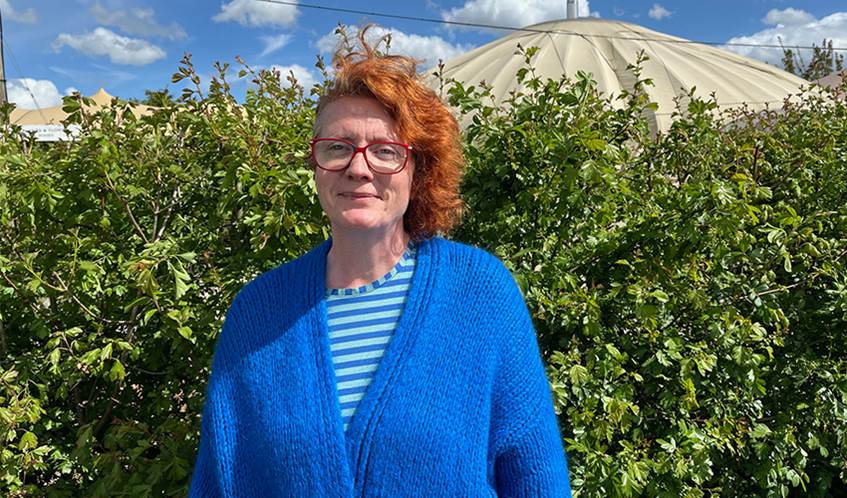UWE Bristol academic paper named as one of this century’s most-cited

Psychology associate professor Dr Victoria Clarke has co-authored the third most-cited academic paper of this century, according to new analysis released by the prestigious research journal Nature.
The paper, ‘Using thematic analysis in psychology’, was written in 2006 and has been cited between 100,000 and 230,000 times, based on insight from five databases tracking academic citations covering tens of millions of papers published in the twenty-first century.
Co-authored with Professor Ginny Braun from the University of Auckland, New Zealand, while she was on sabbatical leave at UWE Bristol, the paper’s intention was to improve the definitions and descriptions of ‘thematic analysis’, a qualitative research approach, for students.
Once published, other researchers started referring to thematic analysis as a method they used and referencing the pair’s academic paper, which saw its citation count shoot up.
Victoria said: “We knew the paper was highly cited but were amazed when Nature got in touch to let us know it was among the most highly cited papers of this century. It was incredible to see that our paper is also in the top ten most cited papers of all time.
“As a qualitative researcher, it feels wonderful for qualitative methods to be represented alongside scientific research. It's exciting to see the increasingly global reach and impact of our work.”
The popularity of the paper has created many opportunities for Victoria and Ginny to connect with students and researchers from around the world, including in France, India, Canada, Japan, Hungary and Ireland, among other countries.
Nature’s analysis suggests the papers that attract the most citations tend to describe scientific methods and approaches, which the publication describes as “the workhorses on which scientists depend”, rather than big scientific breakthroughs.
Related news

18 December 2025
UWE Bristol professor appointed National Institute for Health and Care Excellence CEO
Jonathan Benger CBE, Professor of Emergency Care at UWE Bristol, has been appointed as the new chief executive officer of the National Institute for Health and Care Excellence (NICE).

17 December 2025
Findings revealed from first UK study into experiences of mothers who are survivors of rape pregnancy
UWE Bristol academics have revealed the findings of the first UK-based study of the experiences of mothers who are survivors of rape pregnancy.

11 December 2025
Social media influencer work is far more demanding than it looks, research finds
A study exploring the mental health impacts of social media influencer work has revealed that life online is far more demanding than it appears.

25 November 2025
UWE Bristol experts join film Q&A exploring music and melodrama
Academics will take part in the Cary Comes Home Festival, with a post-screening Q&A exploring music, melodrama and emotional storytelling in classic cinema.

17 November 2025
Urgent reform needed to support ambulance-delivered end of life care, study finds
More than three quarters (78 per cent) of paramedics sometimes fear doing the wrong thing when caring for people in the last year of life, new research has found.

13 November 2025
Bristol’s screen industry experiences “boom-and-bust cycle” after post-pandemic recovery, new research from UWE Bristol finds
New research from UWE Bristol provides detailed insight into Bristol's screen sector.

13 November 2025
New AI research to revolutionise animal welfare
A UWE Bristol research project will combine behavioural science and AI to create technology that understands not only what animals do, but how they feel.

10 November 2025
Lessons from Low Traffic Neighbourhoods will drive better public engagement, study finds
Lessons from Low Traffic Neighbourhoods have informed a new toolkit to improve engagement with the public on challenging local street issues.

06 November 2025
First-of-its-kind study aims to help more people spend their final days at home
A new study will explore how architectural design could support end-of-life care in domestic settings.

29 October 2025
UWE Bristol academic unveils breakthrough in energy-efficient AI at NATO science forum
Dr Jonathan Lancelot has developed a new form of AI that could transform how intelligent machines operate in space, defence, and remote environments.

15 October 2025
UK food needs radical transformation on scale not seen since Second World War, new report finds
A new report from the Agri-Food for Net Zero Network+ finds urgent action on food is needed if the UK is to reboot its flagging economy, save the NHS billions, ensure national food security, and meet climate commitments.

07 October 2025
Academic playing role in project to find hidden graves in Mexico using drone technology
A UWE Bristol lecturer is playing a part in a project using drone technology to locate concealed graves in Mexico.






